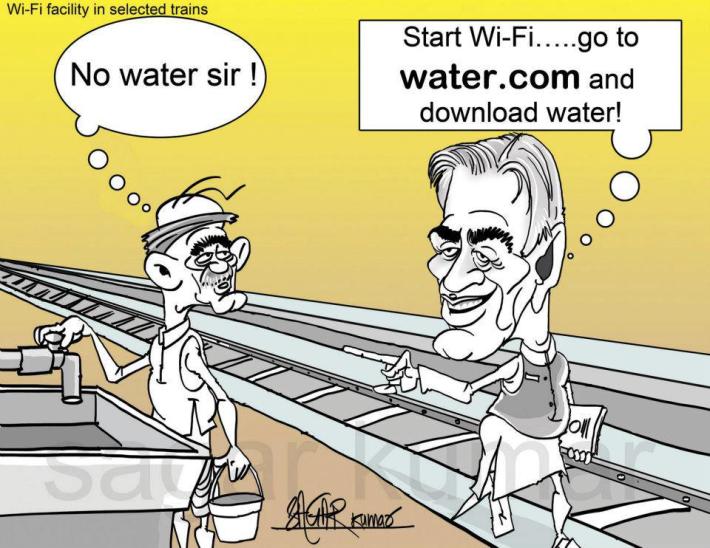I am not sure if the generation of my mom and dad was as polarized as we are at this age. Were they as filled as we are with the juices of 20s – as spellbound as we are by the magic of youth? I cant go back in time and whatever the older generation remembers is bound to be wrong or not accurate enough to make any reasonable assessment, after all their juice is running out. Oh! Wait – They were in era of Indira Gandhi and they were in their “youthful” years when Mrs. Gandhi imposed emergency, they saw a political revolutionary in form of Jay Prakash Narayan, they and also saw rise and fall of Junta Party first hand. There were people who hated Indira and sought messiah in JP; there were those who reviled JP and worshiped Indira. Look where are your parents now? Look around and see where is our country now? I don’t know which side of aisle my mom and dad were. I only hope that they chose a side, and were not indifferent about India’s future – which I fear they were.
Elections, and the drama around it brings best and worst out of our politicians; mostly the worst. Elections also bring out best and worst among us those who have selected a side. What are we? Are we fans, followers, believers, or are we just empty earthen wares, eager to be filled and easy to be replaced, rolling around and finding ourselves at one side or the other. The sliver of Indian population that I observe while sitting on my desk, is not enough to infuse statistical confidence in anything that I might suggest or proclaim. But from what I see, I wonder if this very population is unaware about the difference between the meme and fact, media and news, information and knowledge and most importantly are they unaware that there is a big difference between standing behind a politician and standing behind principles. My observations suggest that many of us are picking memes over facts, media over news, information over knowledge and politicians over principles. Reason many are doing so is because at a deeper level – they are also indifferent.
We are the youth of India, and nothing is impossible for us besides accepting the challenge that our fragility poses before us. It is comforting to believe in what is easy to believe. It is easy to digest information and time consuming to process the knowledge. It is easy to view our world in black and white and forget what it takes to make black black and white white. It is easy to be on one side and not hear and see what other side has to say and show – as assuming deafness and blindness is our Gandhian right.
This drama, 2014 Lok Sabha election will soon end. I have seen your marked fingers, post coitus images of your vote-porn. It seems you have played your part in this drama. Well done. Till 16th of May, your assumed deafness and blindness will be towards things that are external, after 16th, slowly and slowly, this blindness and deafness will spread towards internal agencies. Once back in your cocoon you will resume what you we know best – total indifference. Some would be happy while they recede in their cocoons, some will be sad for the demigods that they worshiped or believed in would either be in the Parliament or not.
What about me? If I am one who is watching it all from the distance, where will it all leave me at the end? I think I will be left tired and pained, as the main actor according to me would have given a flaccid performance and yes, I will still be sitting on my desk.


